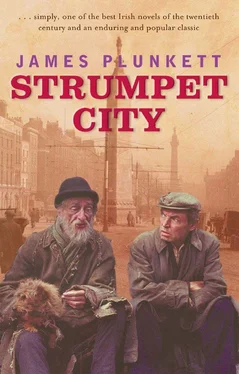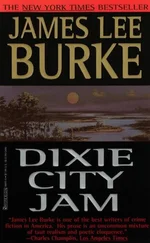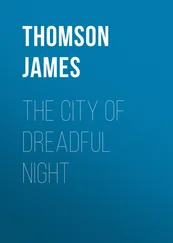‘And how are things spiritual, Father?’ he asked.
Father O’Connor closed his missal, marking the place carefully with a red silk tab. He matched Yearling’s light-hearted humour.
‘That is a difficult question to answer. If I say they are satisfactory I may be guilty of presumption, and if I say they are bad I am opening the door to Despair.’ He settled his missal under his armpit. ‘Perhaps my best answer is that we continue to trust in God.’
Yearling swung his cane and pointed out to sea.
‘Before you came along I was watching that small boat. The thought occurred to me that there was something which has changed little in two thousand years. The boat, the fishermen, their nets.’
Father O’Connor’s eyes followed the pointing stick. The boat moved gently with the motion of the water. Behind it a series of cork floats, spread in a wide semicircle, marked the line of the net. He had not noticed before.
‘The humblest of men,’ he said, ‘yet when He called to them, they followed.’
Yearling’s heavy eyebrows went upwards. He was in an impish mood.
‘Not quite, Father. He had to put on a little bit of magic for them. Didn’t He walk on the water?’
‘That was later,’ Father O’Connor corrected. Yearling’s scepticism did not disturb him. He was, after all, only a Protestant.
‘He did something,’ Yearling insisted. ‘Let me think now.’
‘After a night spent catching nothing, He filled their nets with fish.’
‘Ah,’ Yearling said. That was his point.
‘We must remember who they were. Poor fishermen, ignorant and illiterate. How else was He to win them to Him?’
‘Could He not simply inspire them with Faith?’
‘He wanted them to know their vocation. Remember what He said to them?’
‘What was that?’ Yearling asked, unable to remember.
‘Henceforth you shall be fishers of men.’
Yearling looked sceptical.
‘It’s too damned literary to be true,’ he objected. ‘I feel somebody made it up.’
Father O’Connor pursed his lips and then articulated carefully. ‘The substance of your complaint seems to be that Christ could be graphic and direct. But aren’t these the marks of leadership always?’
‘I don’t expect parlour tricks from God. And why fishermen?’ Yearling mused as they went. ‘Why not start at the top?’
‘Perhaps because it is easier to get the fisherman to leave his net,’ Father O’Connor said.
‘Yes. It takes more than a parlour trick to get a banker to leave his gold.’
‘Quite,’ Father O’Connor agreed.
‘The poor are generally regarded as being more religious than the rich,’ Yearling continued, ‘but of course that isn’t true. They are simply more impressionable and have less to lose.’
Father O’Connor considered for a moment and before speaking pitched his voice so that it would sound polite.
‘Your Church believes that worldly success is a measure of spiritual worthiness; you believe that material well-being and good fortune are marks of God’s favour and that ill fortune is a manifestation of His disapproval. Do you know the story of Dives and Lazarus?’
‘I do,’ Yearling said firmly, ‘and I regard it as the mad creation of some socialist fancy.’
Then he broke out into a loud peal of laughter which brought both of them to a standstill.
‘Forgive me, Father,’ he said contritely, ‘I am presuming too much on our friendship.’
Father O’Connor said: ‘It is better to explore an idea than to keep a polite silence.’
‘You are not offended?’
‘Who am I to be offended?’ Father O’Connor asked.
‘Well then, you must prove it by having coffee with me,’ Yearling insisted.
Father O’Connor accepted graciously. They strolled up the town together, Yearling with a happy spring in his step, his light cane swinging joyfully, his tall, tweed-clad figure with its gay buttonhole matching the sunshine of the morning. Father O’Connor, shorter and more sombre in his black clerical garb, acknowledged at intervals the salutes of his parishioners. Some were old women, some were carters and delivery men, some were little boys who touched their forelocks respectfully. To all he raised his hat and smiled.
‘I’ll concede this,’ Yearling commented, ‘you chaps keep the honour and respect of your flock.’
‘It ought to act as a reminder of our unworthiness,’ Father O’Connor said.
‘Nothing to be ashamed of,’ Yearling said, holding open the glass door of the coffee lounge for him. ‘Society is hierarchical. If they stop saluting you they’ll find something else to salute. And it might not be as worthy.’
They walked across luxurious carpet and joined Mr. Yearling’s colleagues. Father O’Connor recognised Mr. Harrison, a member of the Decorations Committee. The aromas of coffee and cigar smoke, blending pleasantly in the sun-filled room, made him feel urbane and important. He was a young curate in a rich parish, welcomed for his office and his pleasant manners by the important men of the town. He stirred his coffee with careful elegance. Yearling’s bubbling energy had not abated. He beamed over his cup at Harrison and said:
‘Congratulations on an excellent job of work.’
‘In what respect?’ Harrison asked.
‘The decorations. Magnificent. Didn’t you think so, Father?’
‘A credit,’ Father O’Connor said.
‘We all did our share,’ Harrison acknowledged, modestly.
‘Better show here than in Herbert Park. I suppose you heard . . .’
‘I know what you’re going to say: That Murphy refused to be knighted. It sounds incredible.’
‘It’s perfectly true. I had the whole story from an official source. The King called for his sword, but the Lord Lieutenant had to whisper that it was no dice.’
‘With everybody looking on?’
‘In front of a galaxy of gapers.’
‘Good God!’
‘What is Mr. Murphy?’ Father O’Connor asked.
‘One of our own—a Catholic,’ someone blundered.
‘No . . . I mean, politically speaking,’ Father O’Connor hastened to explain.
‘A Constitutional Nationalist,’ Yearling said. ‘The crown for Ireland and West African concessions for William Martin.’
Everybody laughed. Yearling continued:
‘But you must not think it was a question of politics, Father. It was rumoured beforehand that Murphy had organised the exhibition and asked for chairmanship simply to get a knighthood. It so happens that organisers of exhibitions elsewhere had been honoured in that way. When Murphy heard the rumour he told Aberdeen that on no account would he accept such an honour. It appears that the message was not transmitted in time to the King, with the result that William had to say no in public. What do you think of that, Father?’
‘I think Mr. Murphy demonstrated that he is a strong-minded man and a man of principle,’ Father O’Connor said.
‘After the event he sent a letter to His Excellency asking him to explain his refusal to the King. It was delivered at Leopardstown races. I happen to know that it contained this.’
They looked at him expectantly. Yearling, their attention securely held, changed his voice and articulated with great emphasis.
‘I would not wish that His Majesty should leave Ireland thinking that he had left one churlish man behind him.’
Harrison voiced the feelings of the rest.
‘That was well said.’
Yearling looked derisive, but the rest agreed with Harrison. Father O’Connor reflected on the incident and felt admiration for the man, as much for his show of moral courage as for his gracious expression of regret. He felt that with men of like character at the head of Ireland’s business affairs the country must surely prosper. It was an added satisfaction to have gathered that the man concerned was a Catholic as well.
Читать дальше












